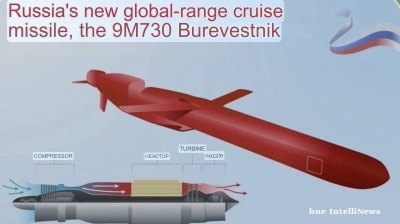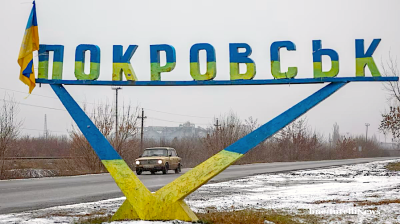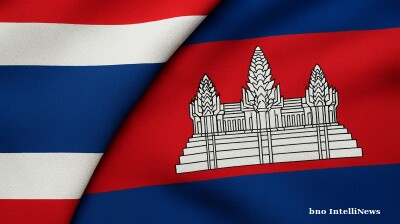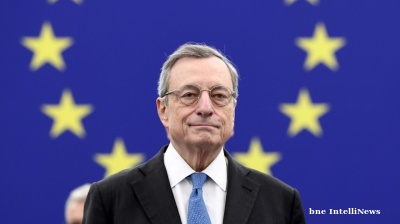Ukrainian President Volodymyr Zelenskiy engaged in a short conversation with Prime Minister Viktor Orban in Argentina on December 10, where both leaders were present for the inauguration ceremony of Argentina's newly elected President, Javier Milei, in Buenos Aires. This marked their second encounter since the war, as Hungary’s pro-Russian leader has refused to travel to the war-torn country.
According to a video captured by the Kyiv Post, the Ukrainian leader confronted Orban, positioning him against a wall. The video lacks audio, and there are no detailed reports on the content of their discussion, which lasted for about 20 seconds. However, judging by the intense gestures and troubled facial expressions, it appears that the exchange was not amicable, local media reported.
"On the sidelines of the inauguration, I spoke with the prime minister of Hungary. It was a straightforward conversation, focused on European affairs," Zelenskiy tweeted on X.
Orban's press chief Bertalan Havasi said the Hungarian prime minister conveyed to Zelenskiy that EU member states are actively deliberating Ukraine's potential accession to the block.
Ukraine’s bid to start accession talks with the EU is on the agenda at the upcoming EU summit, unless EU leaders bow to Viktor Orban’s pressure asking for the issue to be dropped from the agenda.
In a letter addressed to European Council President Charles Michel, Hungary’s strongman argued that the "obvious lack of consensus would inevitably lead to failure" at the summit, referring to his more than probable veto.
The Hungarian leader called for a "strategic discussion" among EU heads of state and government on Europe's entire Ukraine policy, as he continues to question the effectiveness of sanctions against Russia and to oppose further arms deliveries to the war-torn country.
Hungary has retained closer ties with Russian President Vladimir Putin than any other EU leader and has done little to reduce the country’s reliance on Russian energy sources. The leadership in Kyiv has accused Hungary of providing economic support to Russia, which was helping to finance the war.
Orban has insisted that Ukraine is not ready for EU membership and stressed that standing in the way of Ukraine joining the EU would be one of his government's top priorities in the coming months.
As the election campaign draws near, the government aims to keep these issues on the agenda as polls show that the majority of Hungarians agree with the government on Ukraine’s EU chances.
These concerns are shared by diplomats in Brussels, who argue that Orban’s latest drive against Ukraine is politically driven, timed for the launch of the June European Parliamentary election campaign, which is also a local government election in Hungary.
Ukraine’s membership also appears in the latest national consultation questionnaires; there is no doubt that the overwhelming majority of Fidesz core fans will support the government’s narratives.
Last week, after being contacted by Zelenskiy's chief of staff, Foreign Minister Peter Szijjarto stated that a meeting between the two leaders required adequate preparation.
Szijjarto, who has met his Russian counterpart at least half a dozen times since the war, basically turned down the proposal.
In the telephone call with Andriy Yermak, Hungary’s top diplomat said that there will be an opportunity for personal consultations with Ukrainian Deputy Prime Minister Yulia Svyrydenko in Brussels.
Kyiv has approved new laws on corruption and minority rights last week, which could address some of the concerns on the use of the mother tongue of Hungarian ethnic minorities. However, the Hungarian government continues to insist that Ukraine has not done enough to protect minority rights. Foreign Ministry state secretary for bilateral relations Tamas Menczer said in a Facebook post that the resolution is "far from restoring rights taken away from minorities in 2015."
News

Russia test fires its Burevestnik nuclear-powered cruise missile
Russia’s Burevestnik nuclear-powered cruise missile has no analogues in the world, Russian President Vladimir Putin said, as the Kremlin escalates the unfolding missile arms race with Ukraine another notch.

Russia claims to surround Pokrovsk
Russia’s chief of the general staff Valery Gerasimov triumphantly reported to Putin that 31 Ukrainian battalions have been encircled in Pokrovsk and 18 battalions in Kupyansk, the hottest spot in the war.
.jpg)
Brazil and US to start urgent tariff negotiations after Trump-Lula meeting
Brazilian President Luiz Inácio Lula da Silva and US President Donald Trump have agreed to start immediate negotiations on tariffs and sanctions imposed by Washington, following a meeting in Malaysia that sought to ease trade tensions.

Cambodia and Thailand agree peace deal
Thailand and Cambodia have agreed a peace deal to mark the end of a conflict earlier in the year as Cambodian Prime Minister Hun Manet and Thai Prime Minister Anutin Charnvirakul attended a signing ceremony overseen by US President Donald Trump.




